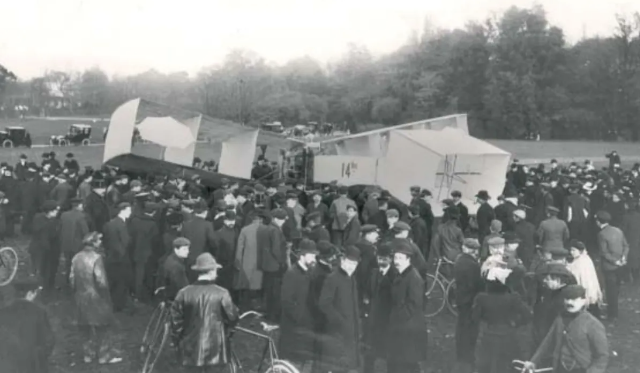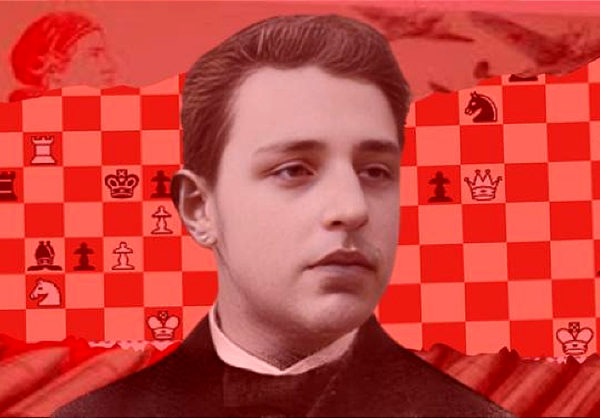Were the Wright Brothers really the first to fly? Not in Brazil

Everyone knows that the Wright brothers made aviation history when they lifted off at Kitty Hawk on Dec. 17, 1903. But the history of flight is a little different when it's told in Brazil -- there, the honor for being the first goes to Alberto Santos-Dumont. The Brazilians challenge the assertion that the Wrights were first to make aviation history with a true airplane since they used a launching rail. By contrast, Santos-Dumont won a competition in France on Oct. 23, 1906, when his winged aircraft flew about 200 feet and then landed safely to win the Aero-Club de France prize of 1,500 francs. The Wrights recorded making dozens of flights before building the catapult to launch their plane, but for Brazilians, the flight by Santos-Dumont was the first that was verified by officials.
NASA says its spacecraft really smacked that asteroid
Two weeks ago, a NASA spacecraft plowed into an asteroid called Dimorphos at about 14,000 miles per hour, to see whether such an impact could alter the asteroid's trajectory, in case humanity should ever need to defend the planet from an oncoming space rock. The team would have considered a 10-minute difference in the asteroid's path a success, according to NASA chief Bill Nelson, but the agency's measurements showed that the impact actually shortened the asteroid’s orbit by a whopping 32 minutes. “All of us have a responsibility to protect our home planet. After all, it’s the only one we have,” Nelson said. “This mission shows that NASA is trying to be ready for whatever the universe throws at us.”

The San Francisco restaurant that offers a $75 tasting menu for dogs
Stories about a San Francisco restaurant called Dogue, which sells a $75 tasting menu for dogs, touched off a firestorm of controversy. To some, the presence of the shop was a sign of messed-up priorities in a city where social inequality makes itself abundantly clear in day-to-day life. But Soleil Ho, food reviewer for the San Francisco Chronicle, went there and said she actually thinks it's pretty great. "I have been to so many restaurants in my time as a critic and food writer, and it’s a special thing to walk into a place and see every single person smiling," she writes. "Maybe I’m getting soft, but that’s no small feat unless you’re talking about a Taco Bell next to a marijuana dispensary."

It took three weeks to kayak down the most endangered river in America
The quicksand was just one of several semi-apocalyptic challenges John Sutter faced on his trip down the San Joaquin, from its headwaters in the Sierras, near Yosemite, to his hoped-for destination, beneath the Golden Gate Bridge in San Francisco. "The San Joaquin is a river that would flip my boat, steal my camera, throw me into trees, take my food, tweak my muscles, acquaint me with heat exhaustion, scare the s--- out of me, trap me in the mud and leave me hiking for three days across a desert," he writes. "Far worse, it also deforms birds (or did, in the 1980s), taints taps, steals jobs, causes the ground to sink irreversibly, kills fish, destroys wetlands -- and harbors shady people with semi-automatic weapons."

How thousands of companies ended up using a bogus psychology test on their staff
Thousands of companies rely on a so-called personality quiz called the Myers-Briggs test as a management or HR resource. All of the major consultancy firms have used it on their staff, Forbes and Inc magazines have both recommended it, and the Imperial College London uses it on its employees. Yet few people realize quite how strange and useless the Myers-Briggs method actually is. It was invented in 1943 by the mystery novelist Katharine Cook Briggs and her daughter Isabel Briggs Myers, a bank clerk. Neither of them had any scientifc training whatsoever. But they were fans of the work of the psychoanalyst Carl Jung who, in 1921, theorized that personalities could be divided into several basic types.

Scientists say they think human hibernation is a real possibility
Animals that hibernate can fend off a remarkable array of threats. Extreme cold and famine are the obvious ones, but hibernation also has the power to combat conditions that plague modern humans, including Alzheimer’s disease, stroke and heart attack. It could even hold the key to longevity and colonising space. The idea that ancient humans could hibernate may seem far-fetched, but evidence suggests that many non-hibernating mammals retain an ability to enter reduced-energy states. “It's likely that the common ancestor of all mammals was a hibernator,” says Sandy Martin, a researcher at the University of Colorado. “It’s possible we all have the genetic hardware” to do so.

Yes, he is on a diet. No, it is not working well
— WholesomeMemes (@WholesomeMeme) October 13, 2022



